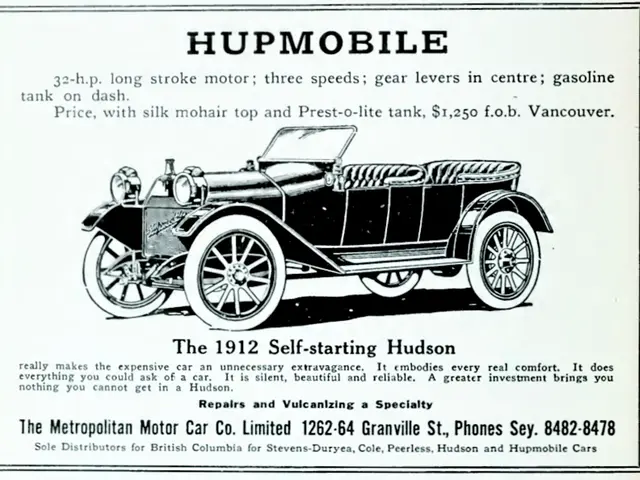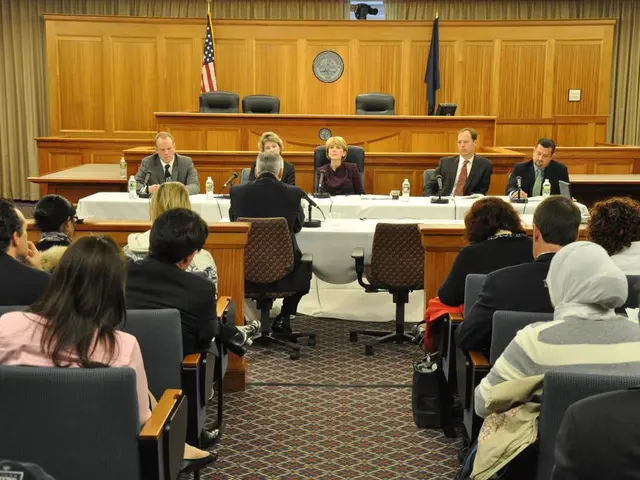Critics slam insufficient parking spaces for overloaded trucks on highways - Critics voice concerns over congested parking areas on highways
Germany is grappling with a considerable shortage of truck parking spaces on its motorways, causing distress for truckers and authorities alike. Estimates suggest that there's a deficit of up to 31,000 parking spaces, with some areas experiencing nighttime and peak hour overcrowding [1][2].
Key Problems on Motorways
Recent investigations by Auto Club Europa (ACE) have revealed the severity of the problem. Between April 15 and June 3, they reported that incorrectly parked trucks constituted a potential traffic danger on high-risk motorways such as the southern Berlin Ring (A10) and A24 in Mecklenburg-Vorpommern. Incidents of overcrowding were particularly pronounced at rest areas in Eastern Germany [3].
At rest areas like Oberlausitz Nord on the A4 near Bautzen, the occupancy rate went as high as 165 percent. The Noethnitzgrund South and North rest areas on the A17 near Dresden had more trucks counted than there were parking spaces, with occupancy rates of 100 and 120 percent [3].
Government Efforts to Alleviate the Crisis
To tackle the issue, the German Federal Ministry of Transport & Digital Infrastructure (BMVI) has pledged €400 million over the next four years for new truck parking spaces [1]. Moreover, the ministry is currently piloting a telematic parking system called "compact parking" at three rest areas — Inntal-West on the A93, Jura-West on the A3, and Montabaur on the A61 [1].
However, there's a lack of transparency regarding specific infrastructure projects, leading industry stakeholders to conduct independent analyses [1].
Proposed Solutions and Industry Recommendations
Industry experts and associations have put forth several strategies to alleviate the crisis:
- Accelerated Construction: The current pace of creating new truck parking spaces needs to be increased to address the demand [2].
- Off-Motorway Facilities: Cheaper and faster to build options, such as "autohofs," can help to relieve pressure on rest areas [2].
- Regulatory Simplification: Streamlining processes to eliminate legal and bureaucratic hurdles can quicken new projects [2].
- Long-Term Planning: Integrating charging infrastructure and anticipating future needs, as the transition to electric trucking will further increase demand for parking spaces [5].
Assessment of Situation
Although the federal government's investment and telematic solutions are demonstrating progress, it's crucial to accelerate the construction rate to meet demand. Exploring off-motorway facilities, streamlining regulations, and planning for the transition to electric trucks will help ensure a secure and efficient freight transport system [1][2][5].
| Strategy | Description | Status ||-------------------------|-------------------------------------------------------------------|------------------------|| Direct Investment | €400 million over 4 years for new spaces | Ongoing || Compact Parking (Telematics) | Optimized use of existing spaces via technology | Pilot at 3 locations || Accelerated Construction | Increase the pace of creating new spaces to meet demand | Needed || Off-Motorway Facilities | Cheaper, faster to build options like "autohofs" | Recommended || Regulatory Simplification| Reducing bureaucratic obstacles | Advocated by industry || Long-Term Planning | Preparing for electric trucks and charging infrastructure | In planning phase |
- The German Federal Ministry of Transport & Digital Infrastructure (BMVI) is focusing on addressing the truck parking space crisis by investing €400 million over the next four years into new spaces and piloting a telematic parking system called "compact parking" at three rest areas.
- Industry experts and associations suggest that to alleviate the crisis, the current rate of constructing new truck parking spaces should be accelerated, off-motorway facilities like "autohofs" should be considered for relieving pressure on rest areas, regulatory simplification is needed to eliminate legal and bureaucratic hurdles, and long-term planning should include anticipating future needs as the transition to electric trucking will further increase demand for parking spaces.








